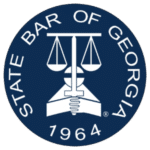Table Content
Article 103, titled “Spying,” criminalizes conduct in which a person, while in or near an area of military operations, seeks to obtain information with the intent to communicate it to the enemy. Although historically the spying offense appears under Article 106 of the UCMJ, Article 103 in certain codified arrangements and explanatory materials is used to describe the same substantive prohibition. The central focus of the article is the gathering of information clandestinely for the benefit of an opposing force.
The offense applies to individuals who collect, attempt to collect, or observe information about U.S. or allied military forces, fortifications, plans, or operations and do so secretly or under false pretenses. The critical factor is that the information is intended for transmission to an enemy. The statute covers both the actual gathering of information and the act of entering an area with the purpose of engaging in such activity.
Article 103 applies to persons subject to the UCMJ, including service members and, in limited circumstances, individuals accompanying or serving with U.S. forces during armed conflict. It also encompasses enemy persons who engage in espionage while within U.S. operational control. Jurisdiction depends on both the person’s status and the location or context of the conduct.
The offense requires specific intent: the accused must knowingly seek to obtain information and intend that the information be passed to the enemy. Mere negligence or accidental collection does not satisfy the statutory standard. Knowledge of the adversarial status of the recipient is essential.
Attempt and conspiracy charges may be brought under Articles 80 and 81 when an individual takes substantial steps toward spying or agrees with others to commit it. A person who assists, facilitates, or encourages spying activity may be liable as a principal under Article 77. These related theories of liability are commonly applied because spying often involves coordinated or preparatory conduct.
To secure a conviction for spying under Article 103, UCMJ, the government must prove each statutory element beyond a reasonable doubt. These elements define the precise conduct and circumstances that constitute the wartime offense.
The mens rea element centers on the specific intent to transmit, or attempt to transmit, sensitive military information to the enemy. This intent distinguishes spying from mere unauthorized observation or negligence.
The actus reus consists of the clandestine or deceptive acquisition or attempted acquisition of protected military information. The conduct must occur within an area under U.S. military control, reflecting the wartime nature of the offense.
Critical statutory terms include “acting clandestinely,” which refers to behavior intended to conceal identity or purpose, and “false pretenses,” which encompasses any deliberate misrepresentation used to gain access or information. “Enemy” refers to any hostile force with which the United States is engaged in armed conflict.
Punishment for violations of the Uniform Code of Military Justice depends on the date of the alleged offense. Offenses committed before December 27, 2023, are sentenced under the traditional maximum_punishment model, while offenses committed on or after that date fall under the revised sentencing framework implemented by the National Defense Authorization Act for Fiscal Year 2022.
For offenses charged as Spying under Article 103a, UCMJ (commonly referenced as Article 103: Spying), the Manual for Courts_Martial prescribes the following maximum authorized punishment for pre_December 27, 2023 conduct:
Spying under Article 103a is classified as a capital offense. Capital offenses are excluded from the standardized sentencing_category system adopted on December 27, 2023. Accordingly, the revised sentencing categories and confinement ranges do not apply. Instead, the offense remains governed by its statutory maximums:
Under the post_December 27, 2023 system, most non_capital offenses are assigned to sentencing categories with defined confinement ranges to standardize sentencing outcomes. These categories limit the maximum confinement available for an offense, replacing the prior model in which each punitive article contained its own discrete maximum punishment. Because capital offenses fall outside this framework, Article 103a offenses continue to rely on the statutory penalties that have historically governed spying, without a sentencing category or confinement range modifying the available sentencing exposure.








Charging decisions under Article 103 typically reflect the specific fact pattern uncovered during an investigation, the nature of the suspected foreign contact or information transfer, and command discretion shaped by national_security sensitivities. Because confirmed spying incidents are uncommon, actual charges tend to stem from concrete, documentable conduct rather than theoretical scenarios.
Most cases involving Article 103 begin with observable behaviors that raise security or counterintelligence concerns. These situations often involve service members who:
These behaviors typically come to light through routine security_clearance reinvestigations, insider_threat monitoring systems, or reports from coworkers who notice procedural anomalies.
Cases usually begin with a security anomaly, a report from a coworker, or a red flag generated by automated monitoring tools. Commands often initiate preliminary inquiries to determine whether the matter appears to involve classified information or foreign intelligence concerns. If it does, military criminal_investigative agencies—CID, NCIS, OSI, or CGIS—assume responsibility. These agencies coordinate closely with counterintelligence elements, conduct interviews, analyze digital activity, and, when warranted, engage federal partners for technical or jurisdictional support.
Article 103 charges are typically accompanied by overlapping provisions to account for varying levels of proof and to preserve prosecutorial flexibility. Charge_stacking is common where conduct spans several regulatory or statutory violations. Prosecutors often draft alternative theories—such as unauthorized disclosure, mishandling of classified information, or false statements—to ensure that the full scope of the misconduct is captured even if the core spying allegation is not ultimately proven.
Prosecutions under UCMJ Article 103 often center on whether the government can establish each statutory element with reliable evidence. These cases frequently involve disputes over the interpretation of specialized terms, the credibility of witnesses with access to sensitive information, and the admissibility of classified or digital evidence. Courts routinely assess the sufficiency of proof, the reliability of investigative methods, and the meaning of statutory requirements.
Disputes commonly arise regarding whether the accused engaged in conduct meeting Article 103’s definition of spying, such as surreptitious collection of information with the requisite purpose or while in certain operational contexts. Litigants may contest whether the information allegedly gathered qualifies as military, defense-related, or otherwise covered by the statute. Another frequent question is whether the accused’s location or status at the time of the alleged conduct satisfies jurisdictional or situational elements. These challenges typically focus on gaps or ambiguities in the government’s proof rather than on alternative narratives of events.
Intent is often a central point of litigation. Article 103 includes concepts such as acting clandestinely, with knowledge of the military significance of the information, or with the purpose of conveying information to an enemy or unauthorized entity. Disputes may arise over whether the accused possessed the required mental state or was merely engaging in otherwise lawful intelligence, reconnaissance, or information-gathering activities. Courts frequently examine circumstantial evidence, surrounding conduct, and contextual indicators to determine whether the government has met its burden on intent or knowledge.
Cases may turn on the credibility of witnesses who observed or interacted with the accused, including intelligence personnel, surveillance operators, or fellow service members. Discrepancies in accounts, memory limitations, and classification constraints can all affect the weight assigned to testimony. Credibility disputes do not resolve legal questions but can influence whether factfinders conclude that alleged conduct occurred as described.
Evidentiary disputes frequently involve the admissibility of statements made during interrogation, especially where issues arise regarding rights advisements or voluntariness. Searches of electronic devices, secure facilities, or communications platforms may prompt litigation over probable cause, authorization procedures, or the handling of classified materials. Questions also arise concerning chain of custody, metadata integrity, and the reliability of digital forensic tools used to retrieve or reconstruct information.
Litigants may contest the meaning of terms such as “enemy,” “spying,” “military information,” or “intent to convey.” Cross-referenced provisions of the UCMJ or other national security statutes can introduce additional complexity. Courts often analyze legislative history, prior military appellate decisions, and context within the broader statutory scheme to resolve these interpretive issues.
Conduct involving forced violation of a safeguard under Article 102
Espionage_related offenses closely tied to spying under Article 103a
Actions that could constitute aiding the enemy under Article 103b
Misconduct in the presence of the enemy under Article 99
Improper handling of countersigns and classified signals under Article 101
Collateral consequences are administrative, professional, or legal effects that may arise independently of the punishments imposed by a court-martial. For a conviction under UCMJ Article 103: Spying, these secondary effects can influence various aspects of a service member’s military status, future opportunities, and interactions with civilian systems.
A conviction for spying may lead to significant administrative actions. These may include:
A spying conviction directly affects security clearance eligibility. It may result in revocation of access to classified information and long-term disqualification from roles requiring clearances. Post-service employment in fields such as defense, intelligence, or government contracting may be limited if clearance eligibility is compromised.
Convictions under Article 103 typically do not trigger sex offender registration. However, certain offenses related to national security may involve other federal or state reporting obligations, depending on jurisdiction. Such requirements are governed by applicable civilian laws rather than military regulations.
The conduct underlying a spying conviction may also violate federal espionage statutes or state security laws. This can create exposure to separate civilian investigation or prosecution, as well as potential civil liability if classified information misuse caused identifiable harm.
For non-citizens or naturalized service members, a spying conviction may affect immigration status. Possible consequences include inadmissibility, removal proceedings, or impacts on naturalization eligibility, depending on federal immigration law.
During the investigative phase of a potential UCMJ Article 103 spying case, decisions made by the service member can influence the trajectory of the matter well before any charges are formally preferred. Investigators, commanders, and legal authorities often form early impressions based on initial statements, evidence availability, and procedural choices.
Military investigative agencies typically collect statements, digital materials, and documentary evidence at the outset of an inquiry. Early legal involvement can help ensure that the context of any materials provided is accurately conveyed and that the service member understands the implications of sharing information. Even when represented by detailed military counsel or civilian military defense lawyers, the presence of legal guidance can affect how evidence is preserved and interpreted.
Command or law-enforcement interviews often occur before the service member fully understands the nature of the allegations or the scope of the investigation. Without clarity on rights and procedures, a service member may provide incomplete, speculative, or imprecise statements that later shape investigative conclusions.
Administrative or command-directed inquiries may proceed independently of any criminal process. Early findings in these settings can influence later decisions regarding security clearances, duty assignments, or whether additional investigative steps are pursued.
Choices made early—such as consenting to searches, providing written statements, or responding to administrative inquiries—can have continuing effects in subsequent court-martial proceedings or administrative actions. These early actions may be referenced throughout the case and can inform how decision-makers assess credibility and intent.
Gonzalez & Waddington is a civilian military defense law firm that represents service members worldwide in cases arising under the Uniform Code of Military Justice. The firm focuses on complex military criminal matters and provides legal guidance to individuals facing courts_martial, military investigations, and administrative actions across all branches of the armed forces.
If you are facing allegations connected to UCMJ Article 103 or believe you may be under investigation, Gonzalez & Waddington can discuss your situation and explain available legal options. Contact the firm to request a confidential consultation and learn how experienced civilian military defense counsel can assist you in navigating the military justice process.
Q: What does UCMJ Article 103: Spying cover?
A: Article 103 addresses acts of espionage committed by individuals who, while in a hostile area, collect or attempt to collect information with the intent to convey it to an enemy. The article focuses on conduct that provides or attempts to provide a military advantage to an opposing force. It applies to service members and, in certain situations, civilians subject to military jurisdiction. The core issue is whether the accused purposefully acted to aid an enemy through clandestine information gathering.
Q: What is the maximum punishment for UCMJ Article 103: Spying?
A: The maximum punishment for a conviction under Article 103 can include the death penalty, depending on the circumstances and the severity of the conduct. Lesser punishments may also be imposed, such as confinement and a punitive discharge. The specific sentence depends on the nature of the alleged spying activities, the intent behind them, and the harm posed to national security. Sentencing is determined by a court-martial based on the evidence presented.
Q: Can an allegation under this article lead to administrative separation even without a conviction?
A: Yes. Even without a court-martial conviction, commanders may initiate administrative separation proceedings if they believe the underlying conduct poses security concerns or undermines fitness for continued service. Administrative actions rely on a lower evidentiary threshold than a criminal conviction. As a result, service members may face career consequences, including loss of clearance eligibility or separation, based on substantiated concerns identified during investigations or command reviews.
Q: Do I need a civilian military defense lawyer for an investigation under this article?
A: Service members under investigation for suspected spying conduct are entitled to military defense counsel at no cost, but some choose to retain civilian counsel for additional support. A civilian attorney may provide independent guidance and additional time and resources. Whether to hire one depends on the complexity of the case, the seriousness of the allegations, and personal preference. Both military and civilian counsel can work together if the member decides to engage outside representation.
Q: Can an Article 103 matter be handled without a court-martial, such as through administrative action or nonjudicial punishment?
A: While spying allegations are typically treated as serious offenses warranting court-martial consideration, commands technically have discretion to pursue other actions if the evidence does not support a criminal charge. These actions may include nonjudicial punishment, security-clearance actions, or administrative separation. However, because spying implicates national security and classified information, cases often proceed through formal investigative and judicial channels rather than minor disciplinary processes.
Q: Which agencies typically investigate allegations related to spying under Article 103?
A: Investigations often involve specialized agencies such as the Defense Counterintelligence and Security Agency, military criminal investigative organizations, or, in some circumstances, federal counterintelligence agencies. These entities may conduct interviews, review digital communications, evaluate classified-handling practices, and examine potential foreign contacts. Their goal is to determine whether information was intentionally collected or transmitted to an enemy and whether the conduct meets the elements required for a spying charge under the UCMJ.
To better understand the Articles of the UCMJ and how military law works in practice, you can review the UCMJ and related authorities here: UCMJ Articles and Military Justice Resources. For additional official guidance, visit the U.S. Navy Judge Advocate General’s Corps website at jag.navy.mil.

A renowned military criminal defense attorney and best-selling author, Michael Waddington defends clients worldwide in serious cases and trains lawyers in advanced cross-examination. He is frequently featured by major media outlets like CNN and 60 Minutes.

Alexandra González-Waddington is a top military and civilian defense attorney who has handled high-profile sexual assault, violent crime, and war-crimes cases globally. Her work is widely recognized by media outlets including 60 Minutes and ABC’s Nightline.